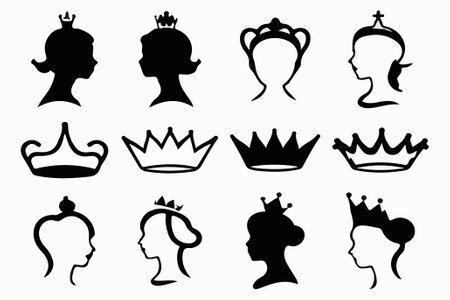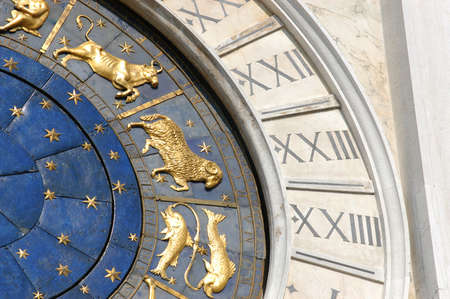Historical Context of Astrology in Britain
The relationship between astrology and British society is one woven through centuries, marked by a fascinating interplay of belief, scepticism, and cultural adaptation. Tracing its roots to the medieval period, astrology was once an esteemed discipline, consulted in royal courts and academic circles alike. Monarchs such as Elizabeth I were known to keep court astrologers, whose interpretations of birth charts guided political decisions and personal affairs. This early reverence for astrological wisdom reflected not only a curiosity about fate but also the intellectual climate of the time, where celestial phenomena were seen as intertwined with earthly events.
As Britain journeyed through the Enlightenment and into the Victorian era, the public perception of astrology shifted. The rise of scientific rationalism led to a decline in mainstream acceptance; yet, astrology never vanished from British consciousness. Instead, it transformed—moving from the exclusive chambers of royalty to more accessible formats for the burgeoning middle class. Victorian newspapers began publishing horoscopes, and astrology found new life in popular almanacs. This adaptability underscored its persistent allure and hinted at a future where astrology would capture the imagination of ever broader audiences.
By the twentieth century, birth charts and horoscope columns had become fixtures in British popular culture. The emergence of mass media allowed astrological content to reach households across the nation, cementing its place in daily life. Today, while astrology continues to provoke debate among academics and scientists, its historical journey from royal endorsement to everyday entertainment reveals a unique facet of Britains cultural tapestry—a testament to the enduring human desire to seek meaning in the stars.
2. Media Representation of Birth Charts
The portrayal of birth charts within British popular culture has been indelibly shaped by the nation’s rich media landscape. From the early twentieth-century newspapers to contemporary television and radio, astrology has found a persistent and evolving presence, with birth charts often serving as a touchstone for public fascination and debate. In this section, we examine the distinctive ways in which British newspapers, radio, and television have represented birth charts, drawing particular attention to the roles played by prominent astrologers and influential columnists.
The Press: Daily Columns and Notable Astrologers
British newspapers have long cultivated a relationship with astrology, most notably through daily horoscope columns that frequently reference birth charts. These columns, often penned by celebrated figures such as Patric Walker and Russell Grant, provided not only entertainment but also a pseudo-philosophical lens through which readers could interpret their lives. The table below highlights some of the most prominent astrologers and their associated publications:
| Astrologer | Publication | Era |
|---|---|---|
| Patric Walker | The Evening Standard | 1970s–1990s |
| Russell Grant | The Daily Mail | 1980s–present |
| Cainer Family (Jonathan & Oscar Cainer) | The Daily Mail / The Sun / The Mirror | 1990s–present |
| Lori Reid | The Express | 1990s–2000s |
These astrologers are not merely writers; they are cultural interpreters who infuse astrological symbolism into the British public’s daily routine. Their writings often blend a pragmatic British sensibility with an openness to mystical interpretation, reflecting the nation’s nuanced approach to astrology.
Radio: Personalisation and Listener Engagement
On British radio, astrology has evolved from mere prognostication to participatory entertainment. Programmes on BBC Radio 2 or local stations often invite astrologers to interpret listeners’ birth charts live on air, creating an intimate atmosphere that bridges the gap between expert and audience. This medium allows for greater personalisation than print, as listeners phone in with specific birth details, seeking advice or validation. Notably, astrologers like Shelley von Strunckel have made frequent guest appearances, offering nuanced readings that resonate with a cross-generational audience.
Television: Spectacle and Celebrity Endorsement
The visual nature of television has amplified both scepticism and intrigue regarding birth charts. Programmes such as “This Morning” or “Strictly Come Dancing” occasionally feature segments where celebrities’ birth charts are dissected for entertainment value or to explain personality traits. These televised readings often straddle the line between scientific analysis and theatrical spectacle, playing into Britain’s tradition of combining seriousness with wit.
Summary Table: Media Outlets and Approaches to Birth Charts
| Medium | Main Approach | Notable Figures/Shows | Cultural Impact |
|---|---|---|---|
| Newspapers | Daily horoscopes referencing sun signs and birth charts; written columns | Patric Walker, Russell Grant, Jonathan Cainer | Mainstreaming astrology; shaping public dialogue around fate and personality |
| Radio | Live chart readings; interactive listener participation | Shelley von Strunckel (guest), BBC Radio 2 features | Personalised guidance; fostering community connection through shared experience |
| Television | Spectacular chart analysis; celebrity-focused segments; panel discussions with sceptics and believers alike | This Morning, Strictly Come Dancing special features; Russell Grant appearances on reality TV | Entertainment value; popularising astrological language in mainstream discourse |
Together, these media representations illustrate the complex tapestry of attitudes towards birth charts in Britain—from playful curiosity to earnest belief—mirroring broader social currents while reinforcing astrology’s enduring place in British cultural life.

3. Celebrities and Astrological Narratives
In the British popular imagination, celebrities occupy a unique space as both influencers and subjects of fascination. The intersection of astrology and celebrity culture has become increasingly pronounced, with birth charts serving as narrative devices through which public personas are constructed, interpreted, and scrutinised. Media outlets frequently reference the star signs and planetary placements of well-known figures—from actors and musicians to royals and television personalities—imbuing their achievements or controversies with celestial significance.
Astrological discourse in the UK media often operates as a form of modern myth-making. For instance, a celebrity’s alleged “Leo confidence” or “Piscean sensitivity” is used to explain career choices, romantic entanglements, or even moments of crisis. These references are not merely frivolous; they subtly reinforce archetypes that resonate with the British public’s enduring appetite for character analysis and storytelling. In many cases, journalists consult professional astrologers to interpret high-profile birth charts, weaving these insights into articles that speculate on future endeavours or decode personal setbacks.
This phenomenon extends beyond print media. Television interviews and radio segments may include playful nods to astrological traits, while social media platforms abound with memes and commentary linking celebrity behaviour to their zodiac profiles. Such narratives contribute to the shaping of public perception, encouraging audiences to view celebrities through an astrological lens. The popularity of this approach reflects a broader cultural embrace of astrology as both entertainment and a semi-serious mode of interpretation—a distinctly British blend of irony and curiosity.
The impact on celebrities themselves is twofold. On one hand, astrological narratives can enhance relatability and endearment; fans who share a star sign may feel a greater affinity for their idols. On the other hand, being pigeonholed by cosmic stereotypes can limit the complexity with which public figures are regarded. Yet, some British celebrities have actively engaged with these narratives, incorporating astrological motifs into their branding or using horoscopes as talking points in interviews—further blurring the line between personal identity and public mythology.
Ultimately, the interplay between birth charts and celebrity image within British culture reveals much about societal values: a predilection for symbolism, a love of narrative coherence, and an ongoing negotiation between scepticism and belief. As long as astrology remains embedded in the fabric of British popular discourse, it will continue to shape not only how celebrities are perceived but also how their stories are told.
4. Social Media and the Reinvigoration of Astrological Interest
The resurgence of birth charts within British popular culture cannot be fully understood without acknowledging the pivotal role played by social media platforms such as Twitter and Instagram. These digital arenas have provided fertile ground for both professional astrologers and amateur enthusiasts to share, debate, and even lampoon astrological content in ways distinctly reflective of British wit and sensibility. The hashtags #AstroTwitterUK and #BritishBirthCharts have become commonplace, serving as virtual meeting points for discussions on planetary alignments, rising signs, and the ever-popular Mercury retrograde phenomenon.
On Instagram, a new breed of British astrologers has emerged—characterised by their sharp humour, self-deprecating memes, and an affinity for blending astrology with local cultural references. For example, posts comparing star signs to classic British icons such as the red bus or afternoon tea not only make astrology more accessible but also reinforce its relevance in everyday life. Meanwhile, Twitter threads often see lively debates about the supposed “most British” zodiac sign or humorous takes on how each sign would handle a rainy day in Manchester.
The following table highlights some uniquely British trends observed in the online astrological community:
| Platform | Trend | Example |
|---|---|---|
| Witty commentary & viral threads | Debates on the “Britishness” of each zodiac sign; trending hashtags like #LondonAstrology | |
| Meme culture & visual storytelling | Infographics linking tea preferences to moon signs; memes featuring British TV personalities as zodiac archetypes | |
| TikTok (cross-platform influence) | Short-form video horoscopes | Skits set on the London Underground exploring each sign’s commuter style |
This digital renaissance has also democratised access to astrological knowledge. No longer confined to magazine columns or exclusive circles, birth chart readings are now shared openly, with followers encouraged to engage directly—asking questions, sharing personal anecdotes, or even challenging interpretations. Uniquely British voices, often marked by a blend of scepticism and curiosity, contribute to a dynamic and evolving conversation that resonates across age groups and social backgrounds.
5. Public Perception and Cultural Critique
Within the British cultural landscape, astrology and birth charts occupy a curious position—both cherished by enthusiasts and dismissed by sceptics. The public’s attitude toward astrology is multifaceted, shaped by historical context, media narratives, and the evolving nature of belief in the modern era.
Believers: Tradition, Identity, and Comfort
For many Britons, astrology offers more than mere entertainment; it serves as a touchstone for personal identity and self-reflection. Birth charts are often consulted during moments of uncertainty or change, offering a framework through which individuals can interpret life events and relationships. The continued popularity of horoscopes in national newspapers and glossy magazines speaks to this enduring fascination. For some, astrology is entwined with tradition—echoing folk beliefs that have persisted across generations—and provides a comforting sense of order amid life’s unpredictability.
Sceptics: Rationalism and Scientific Critique
Conversely, there exists a robust tradition of scepticism in Britain, rooted in Enlightenment rationalism and scientific inquiry. Sceptics often critique astrology as pseudoscience, arguing that its claims lack empirical support and that its widespread presence in the media perpetuates superstition. Influential voices from academia and science communication frequently challenge astrology’s validity, asserting that its popularity reflects cognitive biases rather than genuine insight. Such critique is particularly pronounced within educational settings and among those who champion critical thinking as an antidote to what they see as irrational beliefs.
The Debate in Contemporary Culture
This tension between believers and sceptics fuels ongoing debate about astrology’s place in British society. On one hand, proponents argue for the value of personal meaning-making, emphasising the harmless enjoyment and occasional psychological benefits derived from birth chart analysis. On the other hand, detractors warn against normalising unscientific thinking in a world increasingly reliant on technology and data-driven decision-making.
A Mirror of Broader Social Attitudes
The discourse surrounding birth charts thus mirrors broader conversations about faith versus reason—a motif deeply embedded in British cultural history. Whether regarded as playful diversion or meaningful tradition, astrology continues to provoke reflection on how Britons navigate belief, scepticism, and the search for understanding within an ever-changing world.
Astrology in Everyday British Life
While the discourse surrounding birth charts often finds its stage in tabloids and talk shows, their influence quietly permeates the fabric of everyday British life. In workplaces across the UK, it is not uncommon to overhear colleagues trading witty remarks about Mercury retrograde or speculating if a manager’s stern demeanour might be down to a Capricorn Moon. Such astrological banter serves as social lubrication, offering a light-hearted lens through which to interpret daily frustrations and triumphs alike.
Outside the office, birth charts find their way into the cherished realm of the British pub. Amidst rounds of pints and crisps, friends might muse over whether their compatibility—or recent falling out—was written in the stars. These conversations are rarely earnest divinations; rather, they are playful nods to a shared cultural reference point, much like discussing the weather or last night’s match. The tendency to link personality quirks or romantic prospects to astrological placements has become part of Britain’s casual conversational toolkit.
This astrological awareness extends further into social media exchanges and dating app bios, where sun signs and rising signs are declared with tongue-in-cheek pride or gentle irony. Even those who profess scepticism may indulge in reading their horoscopes for entertainment, using star signs as ice-breakers or mild conversation starters at networking events and dinner parties.
What distinguishes the British approach is its blend of pragmatism and understated humour. Birth charts are seldom treated with solemn reverence; instead, they function as another layer of social narrative—a means for self-expression, group identity, and even gentle mockery. This interplay between belief and banter allows astrology to occupy a unique niche: both a private curiosity and a public amusement.
Ultimately, the presence of birth charts in daily British life reflects an enduring fascination with personality and fate, filtered through the nation’s characteristic wit. Whether invoked to make sense of a colleague’s eccentricities or spark laughter among friends at last orders, astrology endures as a subtle yet persistent thread in Britain’s social tapestry.

